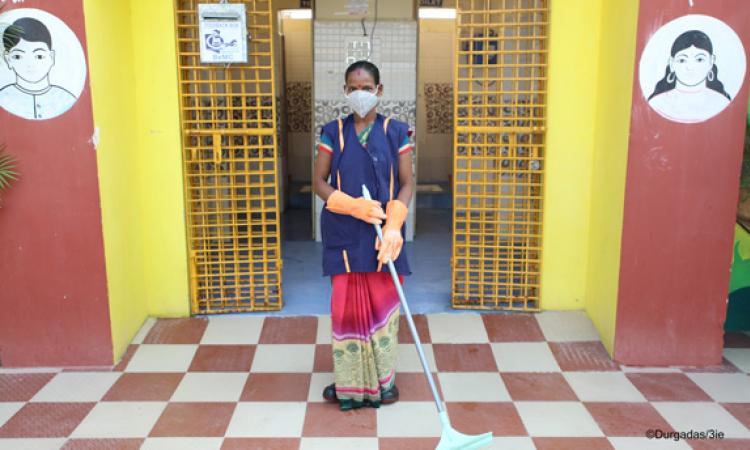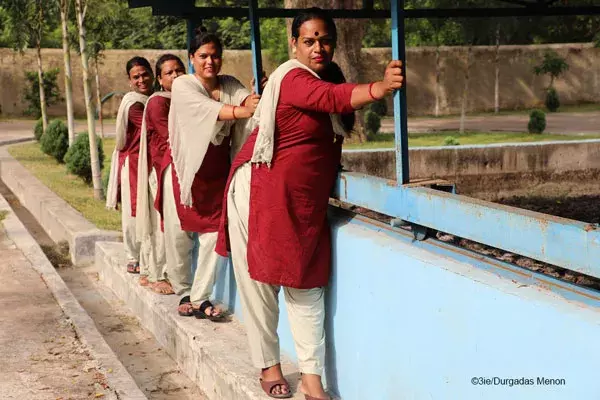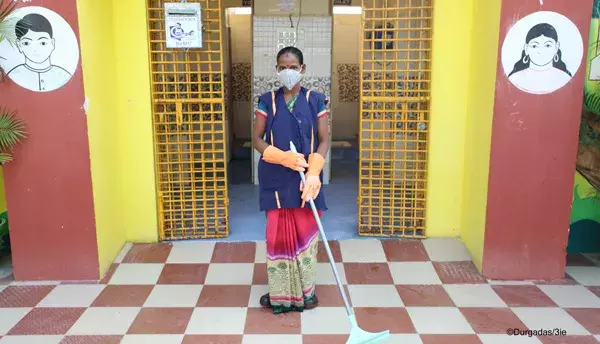Sanitation-Linked Livelihoods Program
Various state governments in India are providing Sanitation-Linked Livelihoods Programs to empower economically and socially marginalized sections such as women, transgenders and the differently-abled in urban areas. 3ie, with support from the Bill & Melinda Gates Foundation, undertook a learning study to understand the barriers and facilitators in programs related to fecal sludge and septage management in Odisha, Tamil Nadu and Telangana. The findings on factors that influence the acceptability, adoption, feasibility, and sustainability of these enterprises to engage members are expected to help in their scale-up and inform other states piloting similar initiatives.

Overview
To achieve holistic sanitation for all, the government of India through the Swachh Bharat Mission is looking at the entire sanitation value chain – right from the containment of fecal waste to its transport, treatment, and its proper disposal. Various state governments have undertaken programs to promote sanitation-linked livelihoods among the urban poor, focusing especially on the socially and economically marginalized sections of the society. These initiatives highlight the convergence between Deendayal Antyodaya Yojana-National Urban Livelihoods Mission (DAY-NULM) and Swachh Bharat Mission (Urban) (SBM, U) to achieve better economic and health outcomes for the targeted population using a multi-sectoral approach. This 3ie study is a learning exercise that aims to provide evidence-informed insights on the initiatives, particularly on the long-term sustainability and scaling-up of the sanitation-livelihoods models. Relevant findings of this study are expected to inform the NULM guidelines to facilitate the engagement of collectives in livelihood activities, as well as aid the state governments’ efforts to enhance the livelihoods of the urban poor through effective programs.
Methodology
The data for this study has been collected using the qualitative method. Focus group discussions (FGD) and in-depth interviews (IDIs) were conducted with various stakeholders, including government officials, collective members and office bearers, and representatives from resource organizations.
Sanitation-Linked Livelihoods Program: Study locations



